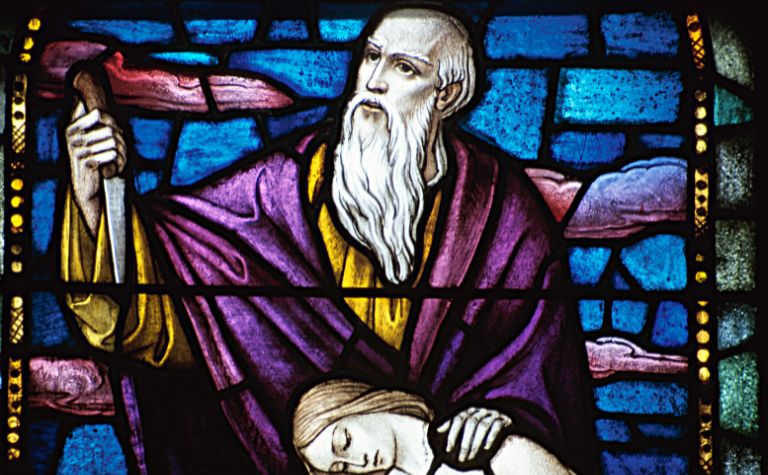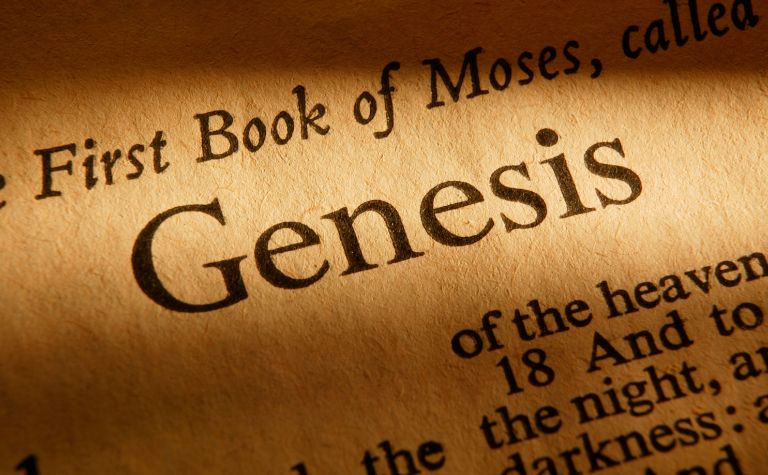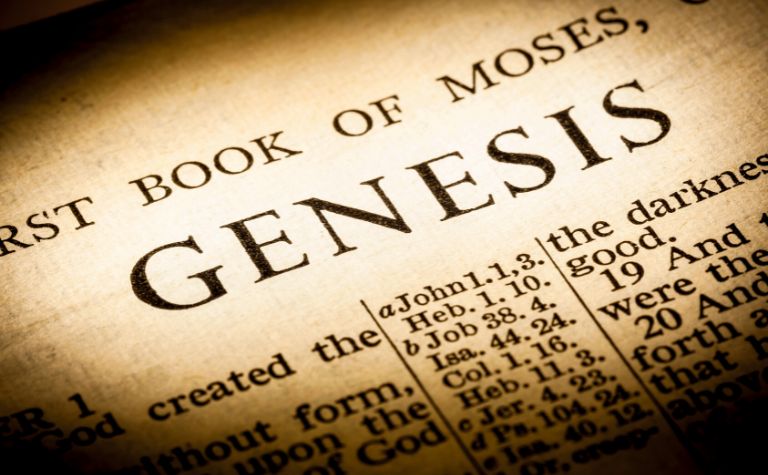Abraham is the main character in Genesis 11:10-25:11. While the Old and New Testaments mention him outside those chapters, they refer to the stories within them. One story in Abraham’s narrative that is most memorable to Bible readers is when he nearly sacrificed his son, Isaac. Understandably, many people want to know why such a faithful man would do such a disturbing thing.
God asked Abraham to kill his son, Isaac, to test his faith. Yet, Abraham didn’t know it was an assessment of his faith in God until after an angel intervened. The question was if Abraham would obey God despite great personal loss or refuse the instruction and choose disobedience.
What does the Hebrew word translated as “test” mean? How is the KJV’s translation of the word unique? Was Isaac’s life ever in danger? What test did Abraham undergo before Isaac’s birth? Did Abraham laugh when God told him to sacrifice Isaac? Keep reading to learn the answers to these questions and others.
Also, many readers of Genesis are familiar with Isaac, but he had other children, too. Discover how many sons Abraham had to learn more about his family.

God Tells Abraham to Kill Isaac
That God commanded a father to kill his long-awaited and beloved son, who had done no wrong, disturbs many readers. Fathers are supposed to be loving and kind, not violent and bloodthirsty.
The story’s unsettling nature is probably why Genesis informs readers within the first few words of the account that it was a test. The description is likely designed to put the reader at ease.
Genesis scholar Gordon Wenham writes that mentioning that God’s instructions were a test “serves to cushion the listener from the full impact of the horrific command to Abraham, and it diverts attention from the question whether Isaac will be sacrificed to whether Abraham will stand up to the test.” [1]
The point of God’s instruction was never to end Isaac’s life but to test Abraham’s faith. However, even though the reader knows this is a test at the story’s beginning, Abraham doesn’t know it until the end. In this way, Abraham is unlike Job, who knew amid his trials that God was testing him.
God tests Abraham’s faith
Genesis 22:1 reads, “After these things God tested Abraham and said to him, ‘Abraham!’ And he said, ‘Here I am'” (ESV). The Hebrew word translated “test” is nasah (נָסָה), meaning “assess” as in “to try” or “to prove.”
| Hebrew word | נָסָה |
| Part of Speech | verb |
| Transliteration | nasah |
| Pronunciation | naw-saw’ |
| Definition | to test, try |
Most major Bible translations render nasah as “test.” The KJV is the only major translation that has an alternative reading. “And it came to pass after these things, that God did tempt Abraham, and said unto him, Abraham: and he said, Behold, here I am.” The NKJV says, “test.”
One Hebrew dictionary explains, “In most contexts, nasah has the idea of testing or proving the quality of someone or something, often through adversity or hardship. The rendering tempt, used frequently by the AV and ASV, generally means prove, test, put to the test, rather than the current English idea of ‘entice to do wrong.'” [2]
Isaac’s life was never in danger
The meaning of nasah implies that God was assessing Abraham’s faithfulness to him, i.e., asking him to prove or show it. His son would live no matter Abraham’s decision regarding Isaac’s well-being.
If Abraham refused to obey God, no harm would come to Isaac. If Abraham obeyed, an angel would intervene, which one did, stop him, and save Isaac. Isaac’s life was never in jeopardy.
Also, God’s promises to Abraham are central to Genesis’ message. Discover what God promised Abraham for more insight into the first book of the Bible.

Isaac Was Abraham’s Promised Child
Abraham was 100 years old when Sarah, his wife, gave birth to Isaac (Gen. 21:5). Even though God promised to provide them with a son, they struggled with Sarah’s barrenness as they grew older.
Sarah even insisted that Abraham father a child with her servant, Hagar, who eventually gave birth to Ishmael (Gen. 16). However, since he wasn’t born to Sarah, Ishmael wasn’t fulfilling God’s promise.
Abraham’s test before Isaac’s birth
Abraham’s test before Isaac was born was whether he would believe God’s promises, even when Sarah aged beyond childbearing years. Could they trust God to fulfill his commitment to them even if it took an intervening in their biological makeup to perform a miracle?
Abraham was 99 years old (Gen. 17:1) when God reiterated his promise to give him a son with Sarah. “I will bless her, and moreover, I will give you a son by her. I will bless her, and she shall become nations; kings of peoples shall come from her” (Gen. 17:16, ESV).
Abraham and Sarah laugh at God
In a demonstration of his doubt, Abraham laughed at God, saying, “Shall a child be born to a man who is a hundred years old? Shall Sarah, who is ninety years old, bear a child?” (Gen. 17:17).
Sarah also laughed when she heard about it, saying, “After I am worn out, and my lord is old, shall I have pleasure?” (Gen. 18:12). God responded, “Is anything too hard for the Lord?” (Gen. 18:14). Despite all the obstacles, God was about to perform a miracle.
Genesis 21:1-3, “The Lord visited Sarah as he had said, and the Lord did to Sarah as he had promised. And Sarah conceived and bore Abraham a son in his old age at the time of which God had spoken to him. Abraham called the name of his son who was born to him, whom Sarah bore him, Isaac” (ESV).
Also, names are important in the Bible because they often have special meanings. Learn what the name Abraham means and how it relates to his story.

Abraham Passes the Test
God’s exact instructions to Abraham were, “Take your son, your only son Isaac, whom you love, and go to the land of Moriah, and offer him there as a burnt offering on one of the mountains of which I shall tell you” (Gen. 22:2). Unlike his previous response to God, Abraham didn’t laugh. He obeyed him.
After Abraham prepared his donkey and gathered some wood, he and Isaac headed to Moriah. Noticing that they didn’t have a sacrificial animal, Isaac asked his father, “Behold, the fire and the wood, but where is the lamb for a burnt offering?” (Gen. 22:7).
Abraham replied, “God will provide for himself the lamb for a burnt offering, my son” (Gen. 22:8). When the time came for Abraham to sacrifice his son, he laid his son on the altar he built and raised a knife above his head, preparing to plunge it into Isaac’s body.
But God stopped him through the divine intervention of an angel. “But the angel of the Lord called to him from heaven and said, ‘Abraham, Abraham!’ And he said, ‘Here I am.'” (Gen. 22:11).
The angel explained, “Do not lay your hand on the boy or do anything to him, for now I know that you fear God, seeing you have not withheld your son, your only son, from me” (Gen. 22:12).
Then Abraham spotted a ram caught in some nearby bushes. He caught it and sacrificed it to God instead of his son. Then Abraham named the place “the Lord will provide” (Gen. 22:14).
New Testament Reflections
The writer of Hebrews celebrates the faith Abraham had in obeying God. Hebrews 11:7 reads, “By faith Abraham, when he was tested, offered up Isaac, and he who had received the promises was in the act of offering up his only son.”
The New Testament also views Isaac as a type of Christ, i.e., a foreshow of the sacrificial death of the Messiah. Like Jesus, Isaac, though innocent, obeyed his father and was willing to die.
Galatians 3:16 is an example of this perspective, “Now the promises were made to Abraham and to his offspring. It does not say, ‘And to offsprings,’ referring to many, but referring to one, ‘And to your offspring,’ who is Christ.”
Also, Abraham’s death is the climax of his story in Genesis. Learn about Abraham’s burial place for more insight.
References:
[1] Genesis 16-50 by Gordon Wenham. WBC. p. 103.
[2] The Theological Wordbook of the Old Testament. p. 581.
Related Questions
The story of Noah, the flood, and the ark is one of the most iconic narratives in the Bible. Not only does the magnitude of the floodwaters leave readers awe-struck, but so does the faith that Noah...
Adam and Eve are the first humans God created. Readers know the pair as the first man and woman, and as the first people to rebel against God, which they did in the Garden of Eden. Did Adam and Eve...
